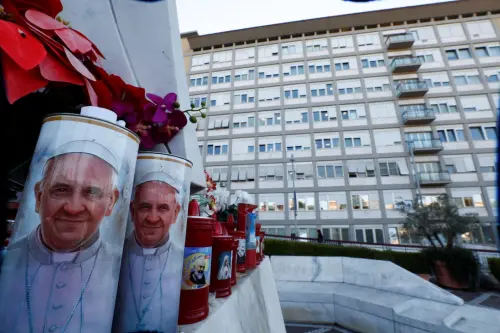The Vatican announced on Saturday that Pope Francis' health had worsened over the past 24 hours, marking his condition as "critical" for the first time. The 88-year-old pontiff, admitted to Rome's Gemelli hospital on February 14 for breathing difficulties, was later diagnosed with pneumonia in both lungs.
In an evening statement, the Vatican mentioned that the Pope had experienced a "prolonged asthma-like respiratory crisis," requiring "high-flow oxygen." The Vatican expressed concern, stating, "The Holy Father's condition remains critical; the Pope is not out of danger."
Additionally, the Vatican detailed that the Pope received blood transfusions due to a low platelet count associated with anemia, alongside supplemental oxygen. Dr. Andrea Vicini from Boston College commented on the situation, noting the Pope's struggle to combat his condition.
The Vatican disclosed that the Pope would not lead prayers with pilgrims on Sunday, marking the second consecutive absence. This marks a rare occurrence as the Pope has a history of prioritizing public appearances despite health setbacks.
Pneumonia, described as a severe infection affecting both lungs, poses a significant threat to the Pope, particularly given his age, frailty, and susceptibility to lung infections. Dr. Sergio Alfieri from Gemelli hospital highlighted the risk of complications like sepsis evolving from the lung infection. Pope Francis, who became Pope in 2013, has a history of health issues, including a vulnerability to lung infections due to prior medical conditions.
